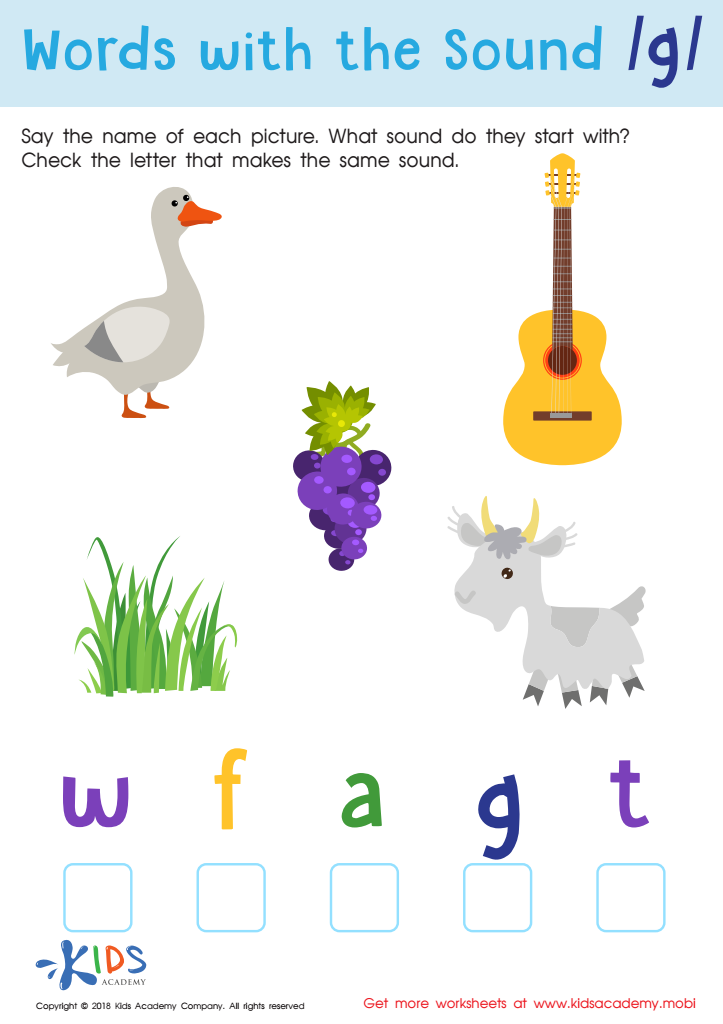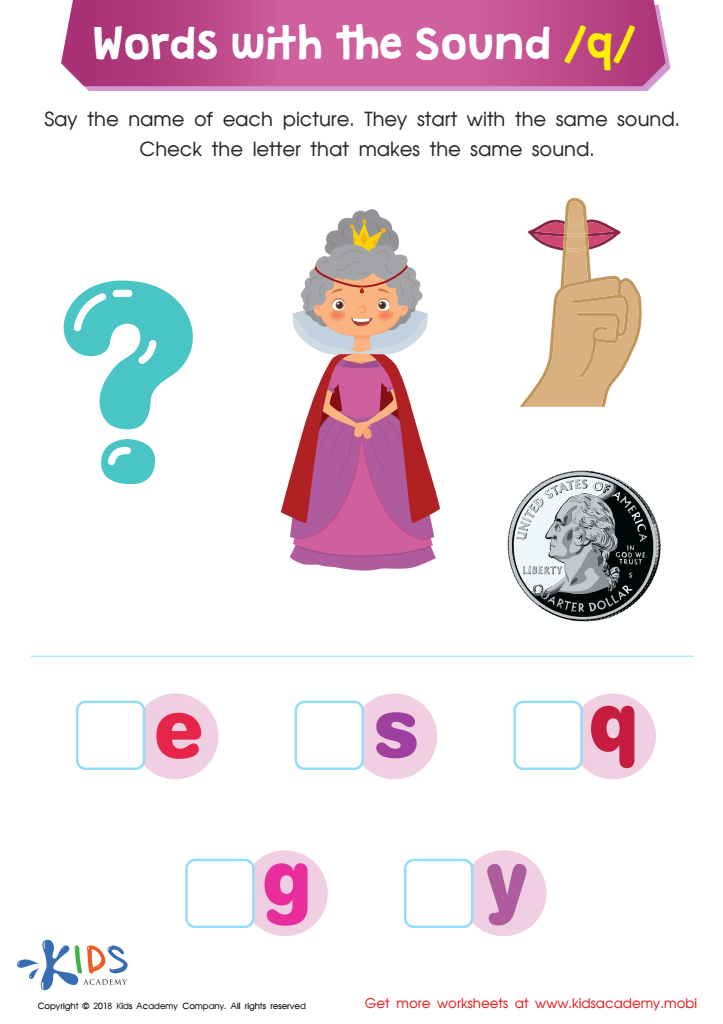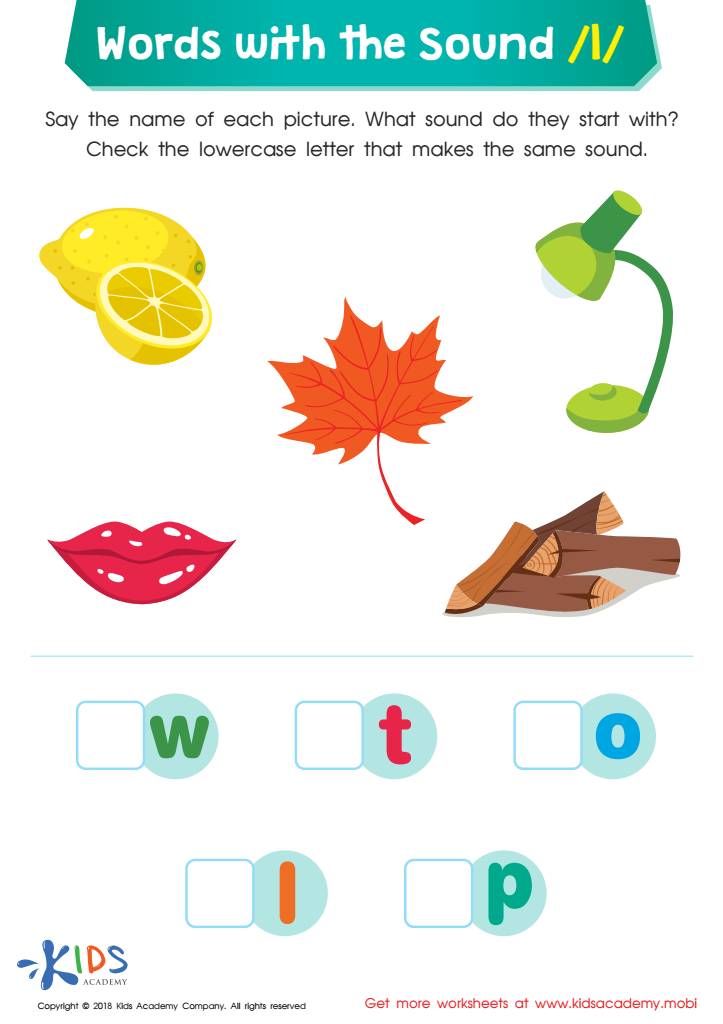Easy Beginning Consonants Worksheets for Ages 4-9
3 filtered results
-
From - To
Discover our "Easy Beginning Consonants Worksheets" tailored for children aged 4-9! These engaging worksheets help young learners identify, pronounce, and write beginning consonants, laying a strong foundation for reading and writing. Filled with fun activities like coloring, matching, and tracing, our worksheets make learning a delightful adventure. Designed by educators, these printable resources are perfect for both classroom and at-home study, providing the essential practice children need to develop phonemic awareness and early literacy skills. Start the journey to reading success with our easy and effective beginning consonants worksheets!


Words with sound g Reading Worksheet


Words with Sound Q Reading Worksheet


Words with Sound L Reading Worksheet
Early mastery of beginning consonants is crucial for young children, typically aged 4-9, as it serves as the foundation for effective literacy skills. Consonants such as 'b', 'c', 'd', and 'g' are building blocks of simple words that children first encounter when learning to read and write. Teachers and parents should care deeply because a strong grasp of these elements can significantly impact a child's ability to decode words, improving both reading fluency and comprehension.
Children who can easily identify and pronounce beginning consonants are more likely to experience early reading success and develop a love for reading. These skills facilitate phonemic awareness, enabling kids to blend sounds and ultimately spell new words. Research shows that early literacy skills are strong predictors of later academic achievement. Therefore, addressing and supporting consonant learning in the 4-9 age range can prevent future reading difficulties, boost confidence, and foster a positive learning experience.
Additionally, this focus nurtures cognitive development. By engaging with beginning consonants, children practice essential language skills, such as listening, speaking, and analyzing sounds. This holistic approach prepares young learners for more complex linguistic tasks down the line, setting them on a path toward sustained educational success. Teachers and parents play a pivotal role in making this happen through consistent practice and encouragement.

 Assign to My Students
Assign to My Students










